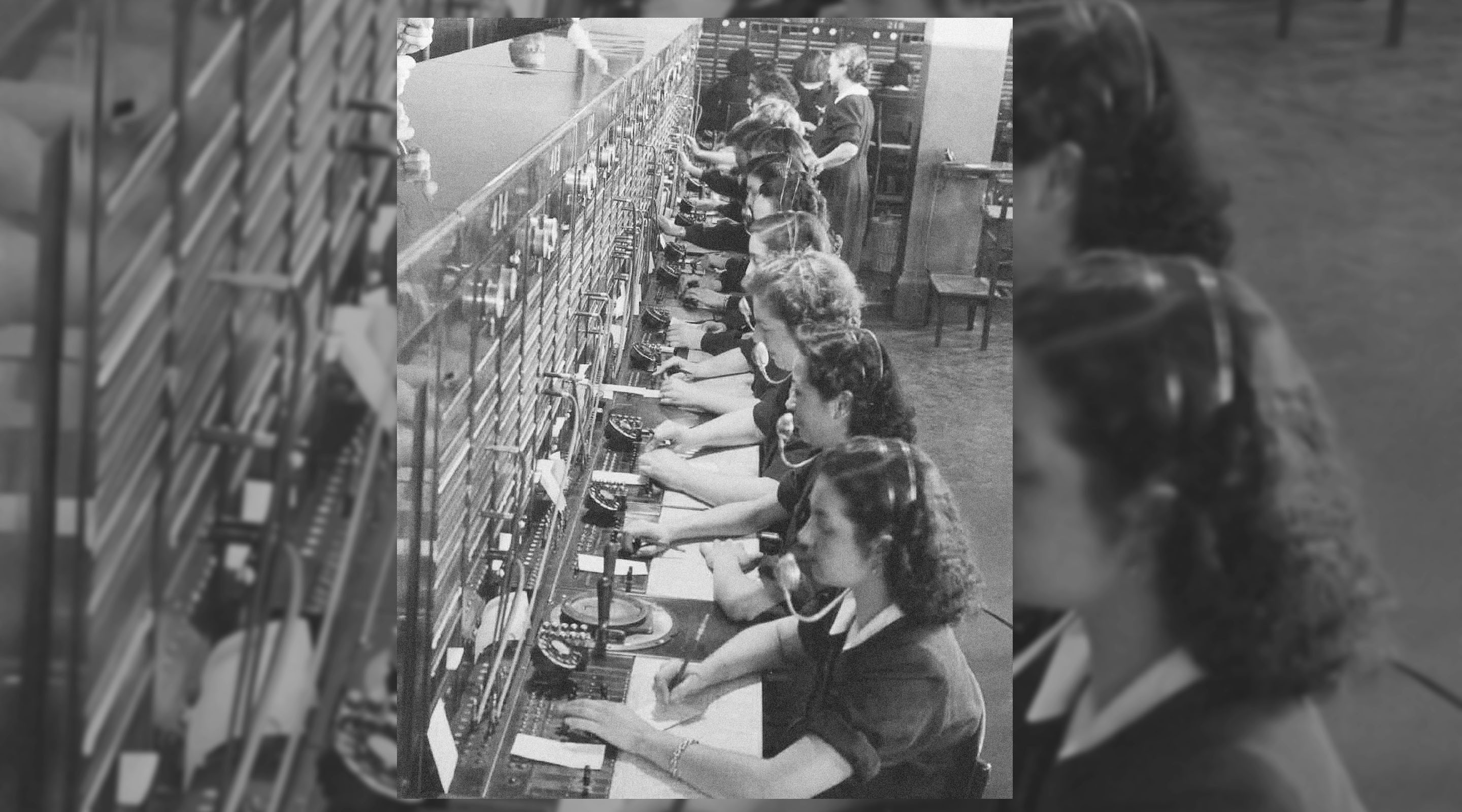
1950
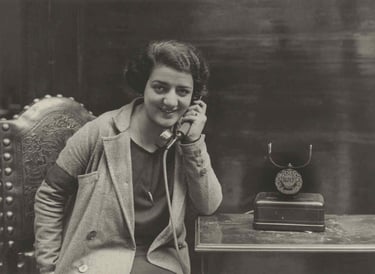
The cable girls were the embodiment of the best Telefónica has to offer. Their technical, commercial and customer service skills make them the cornerstone of the Company's work. The world was in their hands.
Teamwork, a maxim from the telephone operator's handbook
01
Already in 1950, the priority of teamwork was a maxim. In this year's telephone operator's handbook you can read: "but the execution of the service would be impossible if each telephonist, even with the best of intentions, worked as he saw fit (...) teamwork is especially necessary in the task of setting up a conference, since intercity operation will not be possible without a spirit of cooperation similar to that of a sports team". The telephone operators had contact with the customer, were the image of the company in their daily dealings and had to behave courteously. At the same time they ran the operation on long-distance and international calls and had to be efficient in coordinating with other telephone operators. Their training had to be very thorough. That feeling of togetherness, of being part of a big family and belonging to something great, has been part of Telefónica's culture. Something that remains alive after the various organisational, strategic and technological changes of the last hundred years. That is why we still say "I am a telephonist", not "I work at Telefónica" and if you approach a telephonist you will soon notice how this pride of belonging transpires from every pore.
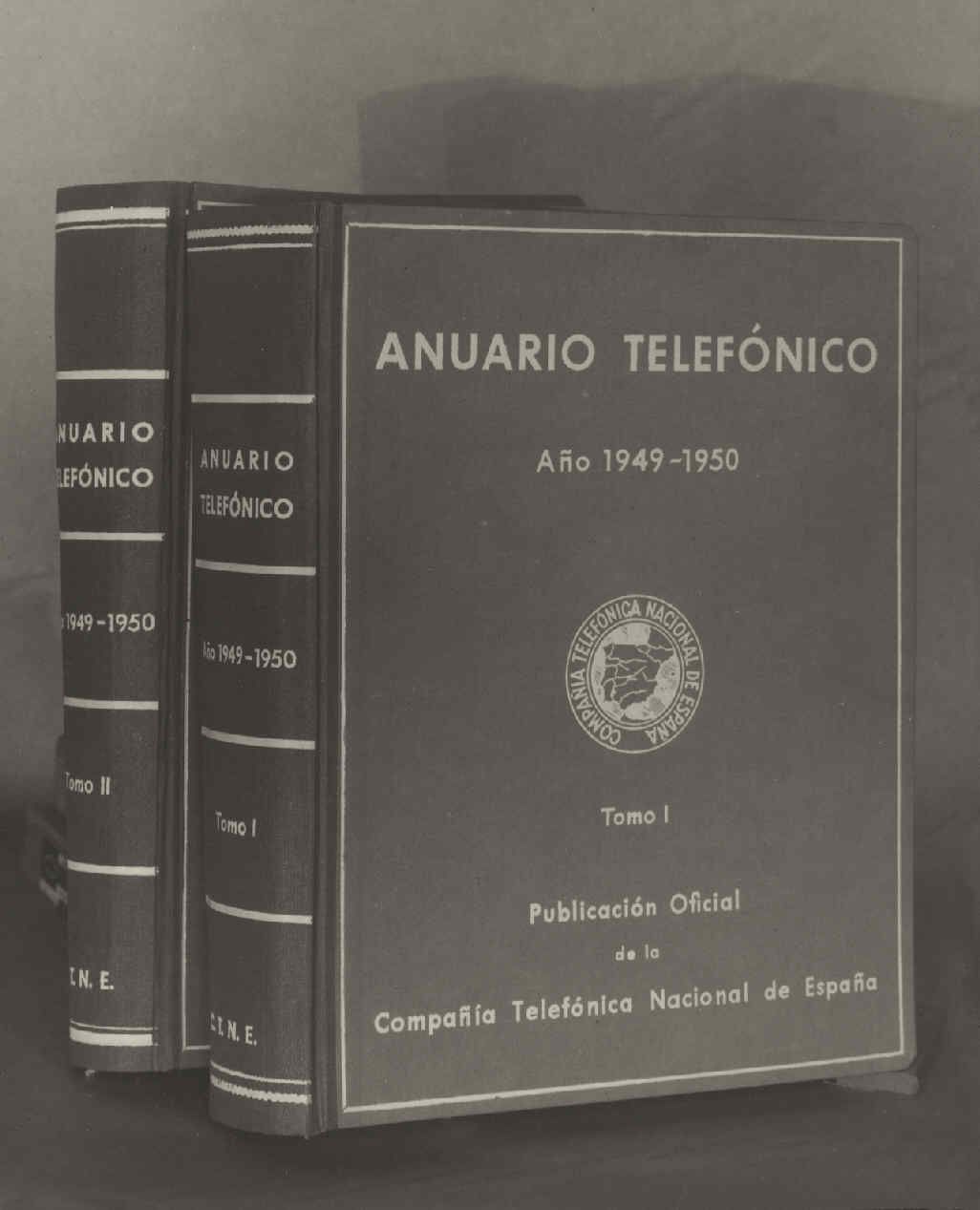
We issue 400 million shares
02
In 1950, Telefónica's Board of Directors approves the issue and circulation of 400 million ordinary shares, which were immediately listed on the stock exchange. The company, while making intensive use of the existing infrastructure, urgently needed funds for the investments required for its development. The following year it agreed to issue, in two stages, 1.2 million shares, and by Decree-Law the Ministry of Finance was authorised to subscribe for 541,735 new CTNE shares.
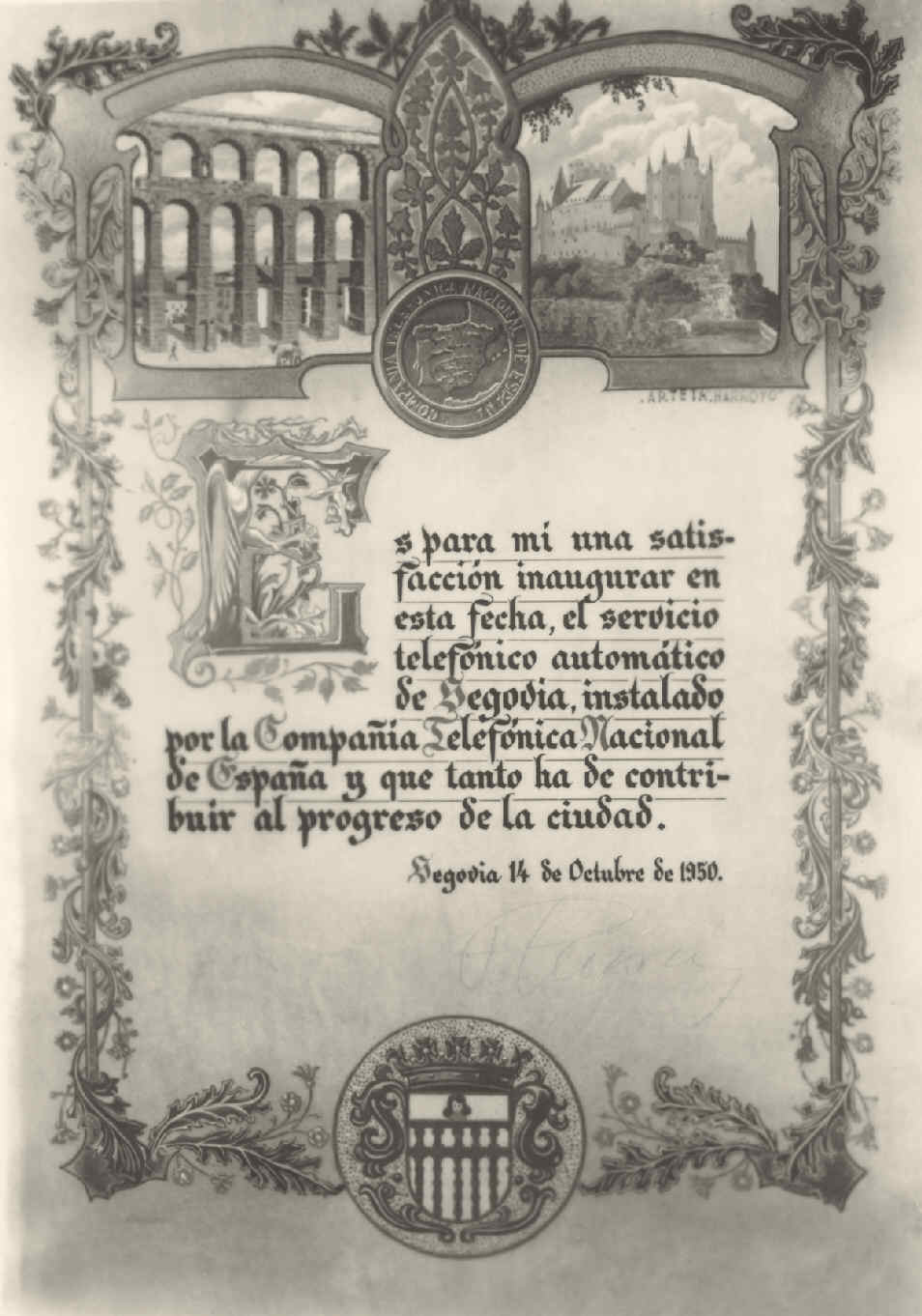
Purchase of materials outside Spain
03
CTNE began the decade with almost 15,000 employees and 60,000 net new registrations "in spite of the difficulties known to all", as the President, José Navarro-Reverter, said in his letter included in the Annual Report. The difficulties, of course, continued to be the shortage and scarcity of materials and equipment, which CTNE was able to overcome thanks to the factories associated with Standard Eléctrica in London, Paris and Antwerp, and always after obtaining the corresponding authorisations from the public authorities.
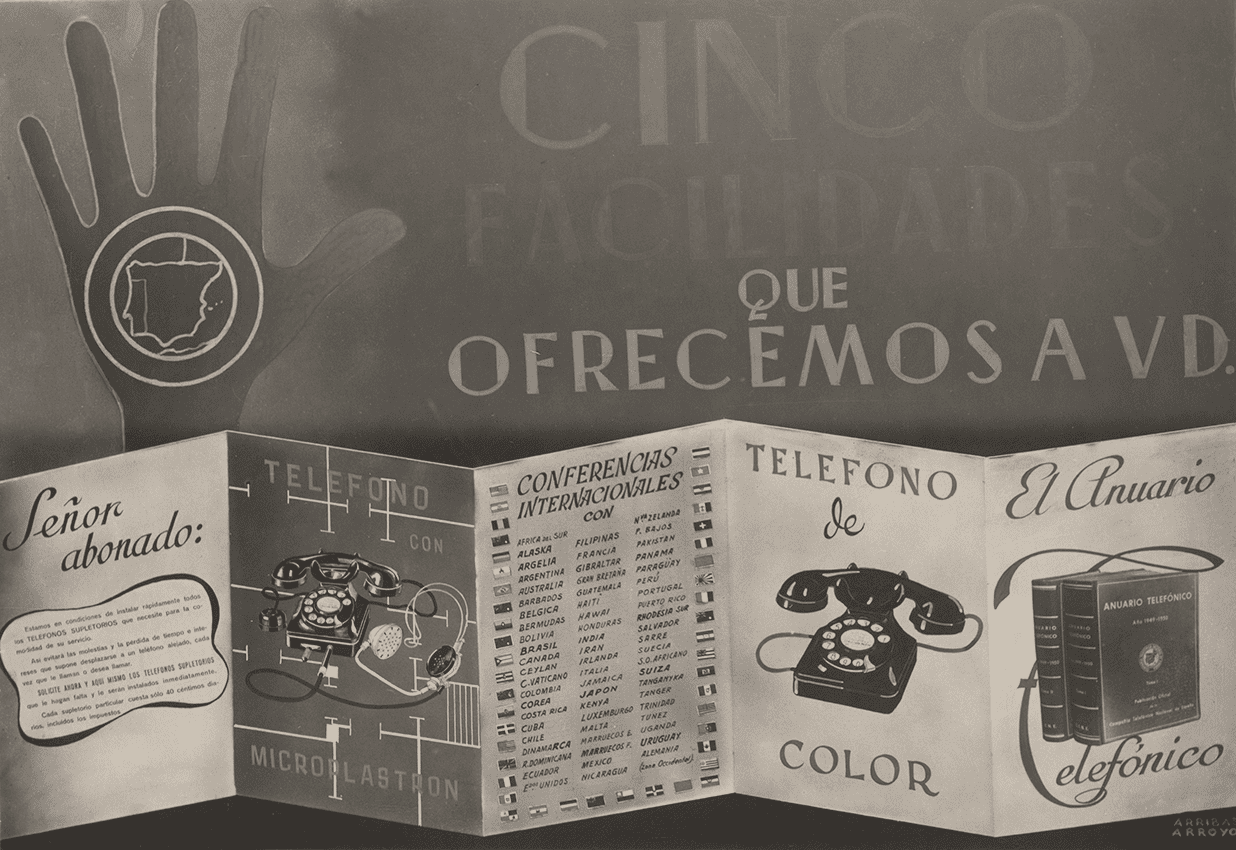
Do you have doubts about what happened?
Ask Aura